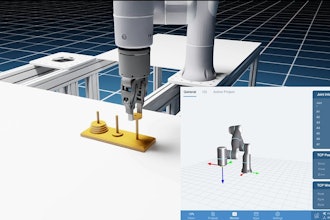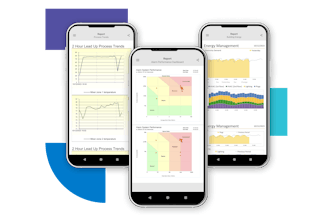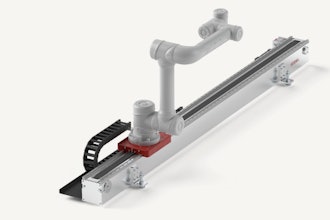
According to the nation’s supply executives in the latest Manufacturing ISM Report on Business, the overall economy grew for the 117th consecutive month, and economic activity in the manufacturing sector expanded in January. Furthermore, comments from the committee reflect continued expanding business strength, supported by strong demand and output.
The PMI increased slightly in January, registering 56.6 percent, an increase of 2.3 percentage points from the December reading of 54.3 percent.
Timothy Fiore, chair of the Institute for Supply Management Manufacturing Business Survey Committee, stated that while January showed a reversal from December’s weak expansion, weak inputs and prices indicate fundamental changes in supply chain constraints.
Many respondents appear optimistic, with one stating, “January is off to a good start versus a lower November and December. We are ahead of both plan and January 2018 performance.”

Demand and Orders
Demand expansion showed improvement, with the New Orders Index registering 58.2 percent, an increase of 6.9 percentage points from the December reading of 51.3 percent. The customers’ Inventories Index remained too low, and the Backlog of Orders remained at a near-zero-expansion level.
One respondent commented, “Incoming orders have been steady, but we’re starting to see signs of slowing going into February and March.”
Production and Employment
Additionally, consumption continued to strengthen in January, with production expanding strongly, registering at 60.5 percent, 6.4-percentage point increase compared to the December reading of 54.1 percent.
Employment saw a decrease of 0.5 percentage points from the December reading of 56 percent.
Supplier Deliveries, Inventories, and Imports
While inputs—expressed as supplier deliveries, inventories, and imports—improved, the numbers are negative to PMI expansion, but do reflect an easing business environment.
The Supplier Deliveries Index registered 56.2 percent, a 2.8 percentage point decrease from the December reading of 59 percent. The Inventories Index registered 52.8 percent, an increase of 1.6 percentage points from the December reading of 51.2 percent.
Exports and Prices
The report showed that exports continued to expand, but at the lowest level since the fourth quarter of 2016, and, for the first time since the first quarter of 2016, prices contracted, showing a 5.3-percentage point decrease from the December reading of 54.9 percent, indicating lower raw materials prices.
Of the 18 manufacturing industries, 14 reported growth in January, in the following order: Textile Mills; Computer & Electronic Products; Plastics & Rubber Products; Miscellaneous Manufacturing; Furniture & Related Products; Printing & Related Support Activities; Primary Metals; Chemical Products; Transportation Equipment; Machinery; Fabricated Metal Products; Petroleum & Coal Products; Food, Beverage & Tobacco Products; and Electrical Equipment, Appliances & Components. The only industry reporting contraction in January is Nonmetallic Mineral Products.
The monthly Manufacturing ISM Report on Business is based on the survey results of approximately 350 professionals across 18 different industry sectors. The report is released on the first business day of each month and features the PMI Index as its key measure. For more information on the Institute for Supply Management, visit www.ism.ws.






















